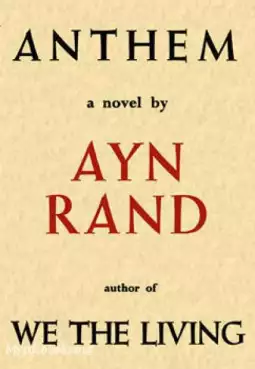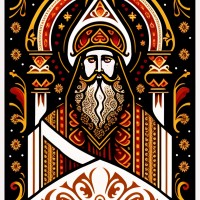
1984 (Nineteen Eighty-Four)
'1984 (Nineteen Eighty-Four)' Summary
In London, Winston Smith is a member of the Outer Party, working at the Ministry of Truth, where he rewrites historical records to conform to the state's ever-changing version of history. Winston revises past editions of The Times, while the original documents are destroyed after being dropped into ducts leading to the memory hole. He secretly opposes the Party's rule and dreams of rebellion, despite knowing that he is already a "thoughtcriminal" and likely to be caught one day.
While in a proletariat (prole) neighborhood, he meets Mr. Charrington, the owner of an antiques shop, and buys a diary where he writes thoughts criticizing the Party and Big Brother, and also writes that "if there is hope, it lies in the proles". To his dismay, when he visits a prole quarter he discovers they have no political consciousness. An old man he talks to there has no significant memory of life before the Revolution. As he works in the Ministry of Truth, he observes Julia, a young woman maintaining the novel-writing machines at the ministry, whom Winston suspects of being a spy against him, and develops an intense hatred of her. He vaguely suspects that his superior, an Inner Party official O'Brien, is part of an enigmatic underground resistance movement known as the Brotherhood, formed by Big Brother's reviled political rival Emmanuel Goldstein. In a lunch conversation with his co-worker Syme, who is assisting in developing a revised version of Newspeak (a controlled language of limited vocabulary), Syme bluntly reveals the true purpose of Newspeak: to reduce the capacity of human thought. Winston reflects that Syme will disappear as he is "too intelligent" and therefore dangerous to the Party. Winston also discusses preparations for Hate Week with his neighbour and colleague Parsons.
1984 By George Orwell Summary
The world of 1984 is a bleak and oppressive place. Oceania is a totalitarian state that controls every aspect of its citizens' lives. The Party, which is led by Big Brother, uses propaganda, surveillance, and violence to maintain its grip on power. The Thought Police are a secret police force that is always watching and listening for any sign of dissent.
Winston Smith is a member of the Outer Party, the working class of Oceania. Winston works at the Ministry of Truth, where he is responsible for rewriting history to match the ever-changing party line. Winston is secretly rebellious and begins to keep a diary, which is illegal in Oceania. He also falls in love with Julia, another member of the Outer Party. Winston and Julia join the Brotherhood, a secret organization dedicated to overthrowing the Party.
However, their rebellion is short-lived. They are eventually caught by the Thought Police and tortured into submission. Winston is released from prison, but he has been completely brainwashed and now loves Big Brother.
1984 is a powerful novel that warns about the dangers of totalitarianism. It is a reminder that freedom is precious and must be fought for.
Here are some of the key themes of 1984:
- Totalitarianism: The Party in 1984 is a totalitarian state that controls every aspect of its citizens' lives. The Party uses propaganda, surveillance, and violence to maintain its grip on power.
- Thought control: The Party in 1984 uses thought control to keep its citizens in line. The Party controls what its citizens read, hear, and see. It also uses Newspeak, a language that has been simplified to make it difficult to think critically.
- The suppression of individual freedom: The Party in 1984 suppresses individual freedom. The Party does not allow its citizens to think for themselves or to express their own opinions.
- The importance of freedom: 1984 is a warning about the dangers of totalitarianism. It is a reminder that freedom is precious and must be fought for.
1984 is a classic novel that has been praised for its prescient vision of the future. The novel has been adapted into films, television shows, and video games. It is a powerful reminder of the dangers of totalitarianism and the importance of freedom.
Some would argue that 1984 by George Orwell still resonates with current society and world. Check our article about it here.
Book Details
Language
EnglishOriginal Language
EnglishPublished In
1949Genre/Category
Tags/Keywords
Authors

George Orwell
England
Orwell's work remains influential in popular culture and in political culture, and the adjective "Orwellian"—describing totalitarian and authoritarian social practices—is part of the English language,...
Books by George OrwellListen/Download Audiobook
- Select Speed
Related books
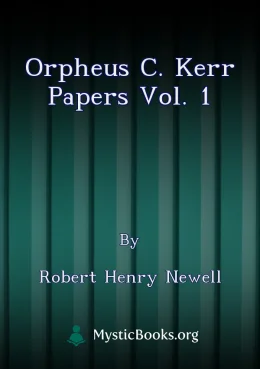
Orpheus C. Kerr Papers Vol. 1 by Robert Henry Newell
The "Orpheus C. Kerr Papers" are a collection of humorous letters penned by a fictional character, Orpheus C. Kerr, during the American Civil War. Wri...
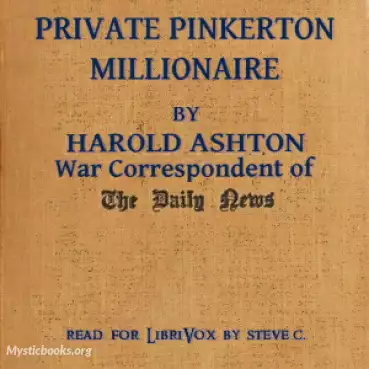
Private Pinkerton Millionaire by Harold Ashton
It takes readers on a suspenseful journey as Private Detective Pinkerton is hired to investigate the mysterious disappearance of a wealthy businessman...
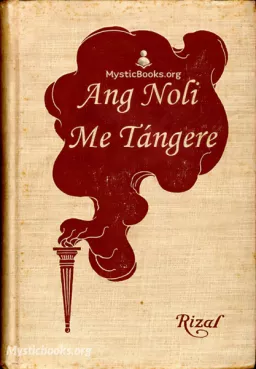
Noli Me Tangere (o Huwag Mo Akong Salingin!) by José Rizal
"Noli Me Tangere" ay Latin para sa "Huwag Mo Akong Salingin," at nililinaw ng nobela ang mga isyu sa lipunan, pulitika, at relihiyon ng lipunang Pilip...
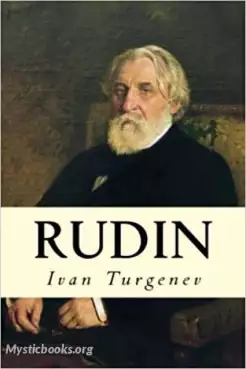
Rudin by Ivan Turgenev
Rudin is the first novel by Ivan Turgenev, a famous Russian writer best known for his short stories and the novel Fathers and Sons. Turgenev started t...
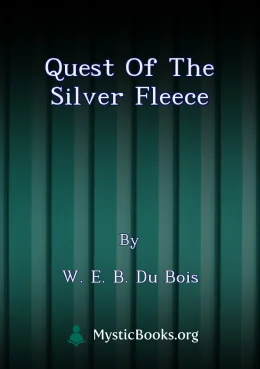
Quest of the Silver Fleece by W. E. B. Du Bois
The Quest of the Silver Fleece is a story of romance, race, economics and politics set around the 1900s. Here, a traditionally educated boy and an uns...
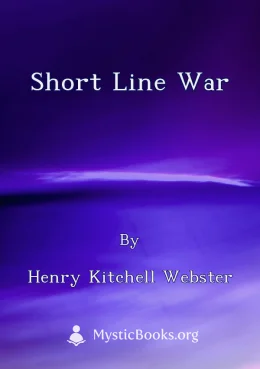
Short Line War by Henry Kitchell Webster
The Short Line War follows the story of Jim Weeks, a successful businessman who finds himself caught in a conflict between two competing railroad comp...

Broken Barriers by Meredith Nicholson
It tells the story of young lawyer Richard Darcy, who is determined to prove himself in the cutthroat world of New York City politics. Despite the obs...
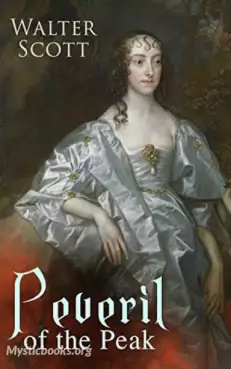
Peveril of the Peak by Sir Walter Scott
Peveril of the Peak (1823) is the longest novel by Sir Walter Scott. Along with Ivanhoe, Kenilworth, and Woodstock this is one of the English novels i...

Vingtième siècle by Albert Robida
Dans "Vingtième Siècle", Albert Robida imagine un futur où les femmes dominent le monde juridique et où la technologie a révolutionné la vie quotidien...
Reviews for 1984 (Nineteen Eighty-Four)
Nations need to stand up for their rights before its too late. Before struggle for freedom becomes struggle for survival.
"You take the blue pill—the story ends, you wake up in your bed and believe whatever you want to believe. You take the red pill—you stay in Wonderland, and I show you how deep the rabbit hole goes. Remember: all I'm offering is the truth."
